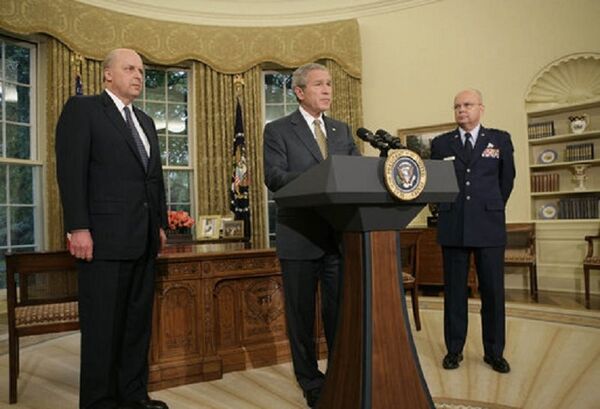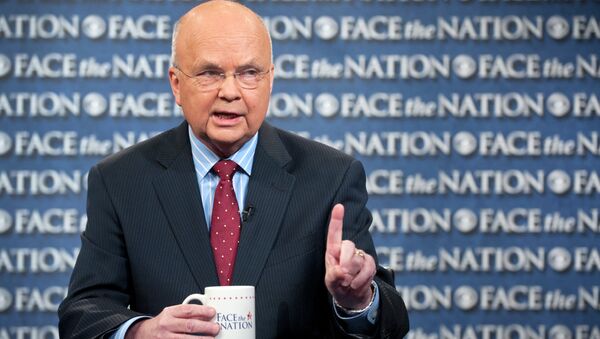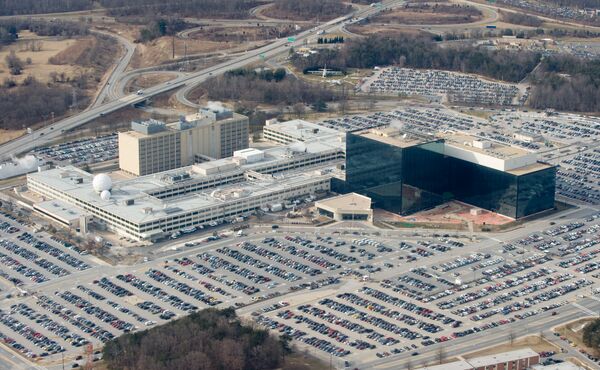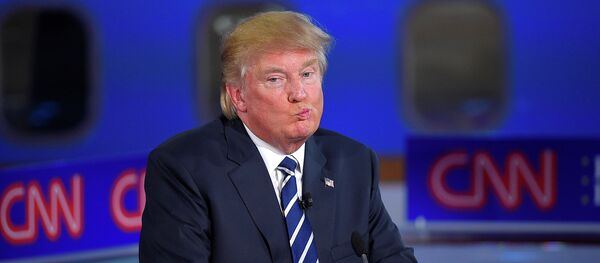The latest scandal over the president's tweets heated up over the weekend, after Trump wrote that CNN and its "(Fake) news" "represent[s] our Nation to the WORLD very poorly" and that Fox News was "MUCH more important" domestically.
.@FoxNews is MUCH more important in the United States than CNN, but outside of the U.S., CNN International is still a major source of (Fake) news, and they represent our Nation to the WORLD very poorly. The outside world does not see the truth from them!
— Donald J. Trump (@realDonaldTrump) November 25, 2017
Trump's remarks resulted in criticism from two senior former George W. Bush-era CIA officials –former acting CIA director John McLauchlin and ex-NSA and CIA director-turned CNN national security analyst Michael Hayden. Hayden, a retired US Air Force general, tweeted that he could not conceive of an American president making "such an outrageous assault on truth, a free press or the first amendment."
If this is who we are or who we are becoming, I have wasted 40 years of my life. Until now it was not possible for me to conceive of an American President capable of such an outrageous assault on truth, a free press or the first amendment.
— Gen Michael Hayden (@GenMhayden) November 26, 2017
But while the comments section of Hayden's post was filled with praise, and even calls for people like the general to help "rebuild the government after Trump is removed," not everyone was convinced about his credentials as a defender of the Constitution.
America has never had a sitting president like this in recent history or any history for that matter. We're going to need people like Hayden to rebuild the government after Trump is removed. Make no mistake; rebuilding trust & teamwork beneficial for country will be necessary. https://t.co/HHdDp3qkkq
— Lynne Camp (@LynneCamp4) November 27, 2017
The Intercept journalist Glenn Greenwald sarcastically tweeted that he was 'moved' by the support being given for the former intelligence chief, including his role at the CIA and NSA approving torture, rendition, and domestic spying programs, among "an array of other evils."
The outpouring of support for George W. Bush's CIA & NSA chief — who oversaw torture, rendition, illegal domestic spying and an array of other evils — is so moving: "No, General Hayden, your career was not wasted!" https://t.co/Q1A2S7TT68
— Glenn Greenwald (@ggreenwald) November 27, 2017
The sentiment was echoed by historian Larry Schweikart, who quipped that Hayden's complaint about Trump's attack on the First Amendment (freedom of speech) doesn't excuse his attacks on the Fourth (which safeguards the right to privacy and freedom from unreasonable intrusions by the government).
Gen. Hayden whines about Trump's "attack" on the First Amendment, conveniently forgetting his own attacks on the Fourth.
— Larry Schweikart (@LarrySchweikart) November 27, 2017
What did the 'intelligence chief-turned-free speech activist' Hayden actually do during his career in government? Joining the government in the late 1990s after a long career in Air Force intelligence, it was between 1999 and 2005, during his stint as director of the National Security Agency, that the NSA enjoyed an unprecedented buildup in its surveillance capabilities, and successfully lobbied for the right to engage in the warrantless tapping of all phone calls, SMS messages, and internet communications inside the United States and abroad.
While the program proved controversial, and was arguably a violation of the US Constitution, Hayden staunchly defended it, claiming that it helped to prevent terrorist attacks. Former NSA employee Edward Snowden helped reveal the dramatic extent of the agency's capabilities and illegal activities in 2013. The bulk of this architecture was put in place by Hayden, who then moved on to the post of deputy director of national intelligence, and then to the CIA, serving in those roles between 2005 and 2009.

A year later, he defended the US's rendition policy (i.e. sending foreign terror suspects to be interrogated in a third country), and was accused of lying to Congress in testimony regarding the CIA's own 'enhanced interrogation' program. An ardent defender of the CIA's drone strike program, Hayden also made the news for lobbying Washington to give the agency the right to carry out drone strikes in foreign countries based entirely on vehicles' alleged suspicious behavior.
In other words, Hayden's critics might say that if President Trump's possible attacks against the US Constitution are worthy of criticism, the former head of the two US agencies best known for their notorious violation of US and international law probably isn't the best person to make the claims.




